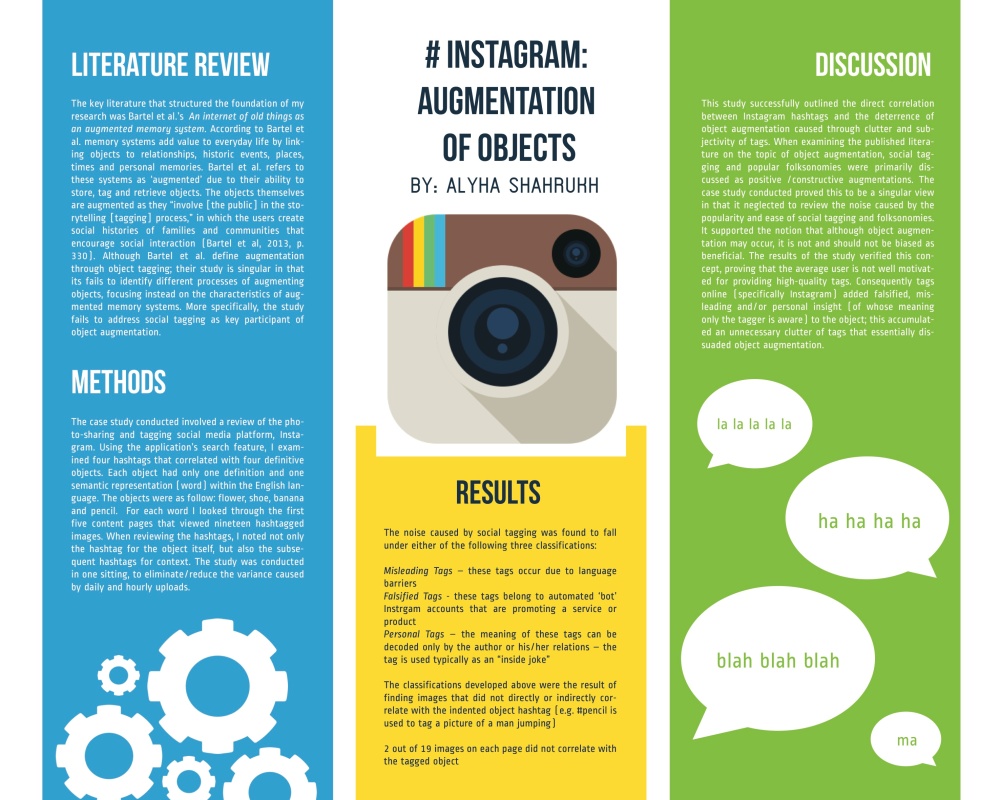In this research project I examined the occurrences of object augmentation through augmented memory systems and social tagging. More specifically, I reviewed current studies and literature on the topic in an effort to combat the prevalent ideology that the augmentation which occurs is positive/enhancing in nature. To support this hypothesis, I conducted a case study which reviewed the image-tagging platform Instagram. The study’s aim was to find a correlation between the social tagging of objects, and information clutter, to assess if the two variables resulted in a negative augmentation for the user.
Considering the above, my findings successfully outlined the direct correlation between Instagram hashtags and the deterrence of object augmentation caused through clutter and subjectivity of tags. When examining the published literature on the topic of object augmentation, social tagging, and popular folksonomies were primarily discussed as positive/constructive augmentations. The case study conducted proved this to be a singular view in that it neglected to review the noise caused by the popularity and ease of social tagging and folksonomies. It supported the notion that although object augmentation may occur, it is not strictly beneficial. The results of the study verified this concept, proving that the average user is not well motivated to provide high-quality tags. Consequently, tags online (specifically Instagram) added falsified, misleading, and/or personal insight (of whose meaning only the tagger is aware) to the object. This accumulated an unnecessary clutter of tags that essentially dissuaded object augmentation.
The following is a research poster for the project:
